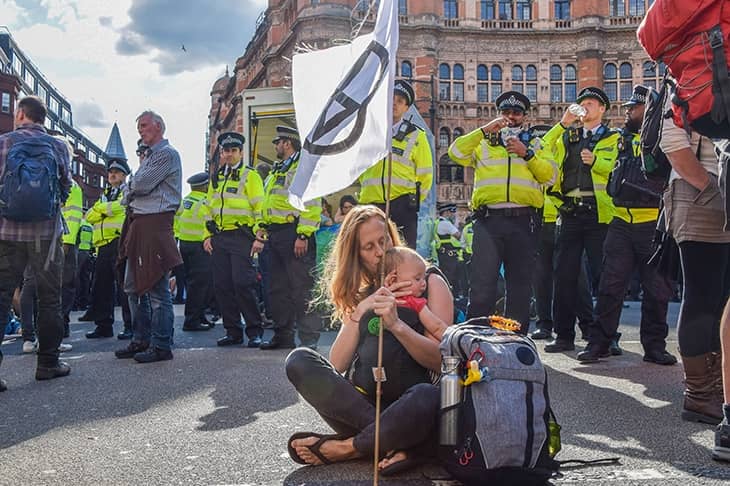The concept of normality has been so disrupted over the past 18 months that the Extinction Rebellion protests — usually designed to stop people getting to work — are unlikely to have as much of an impact as they did. Even so, businesses which are trying to recover from the pandemic find themselves once again cut off from their customers. Bus routes are disrupted and commuters are impeded from getting to work — and for far longer periods of time than with traditional protests.
The group appears to have acquired a new confidence thanks to a Supreme Court ruling in June which quashed the convictions of four protestors who obstructed the entrance to an arms fair at the Excel Centre in east London in 2017. The court ruled that the protest had not lasted long enough to cause serious disruption, and therefore there was no justification for charges under nuisance laws. The judgment has since led to a couple of Extinction Rebellion protestors having their own convictions quashed — although many others against members of the group still stand.
As far as Extinction Rebellion is concerned, the Ziegler judgment (as it has been named, after one of the protestors involved) has enshrined the right to occupy streets and disrupt the lives of ordinary citizens at whim. The police take a different view: there is a requirement to balance the right to protest with the rights of others to go about their business. Just where this balance is struck now is anyone’s guess. Extinction Rebellion’s occupation of Oxford Circus in April 2019 was tolerated for a fortnight, with some police officers filmed dancing with the protestors as if it were a street carnival.
It is wrong to expect police to make political decisions and choose what behaviour they should tolerate
The police cannot be blamed if the law is confusing.







Comments
Join the debate for just £1 a month
Be part of the conversation with other Spectator readers by getting your first three months for £3.
UNLOCK ACCESS Just £1 a monthAlready a subscriber? Log in